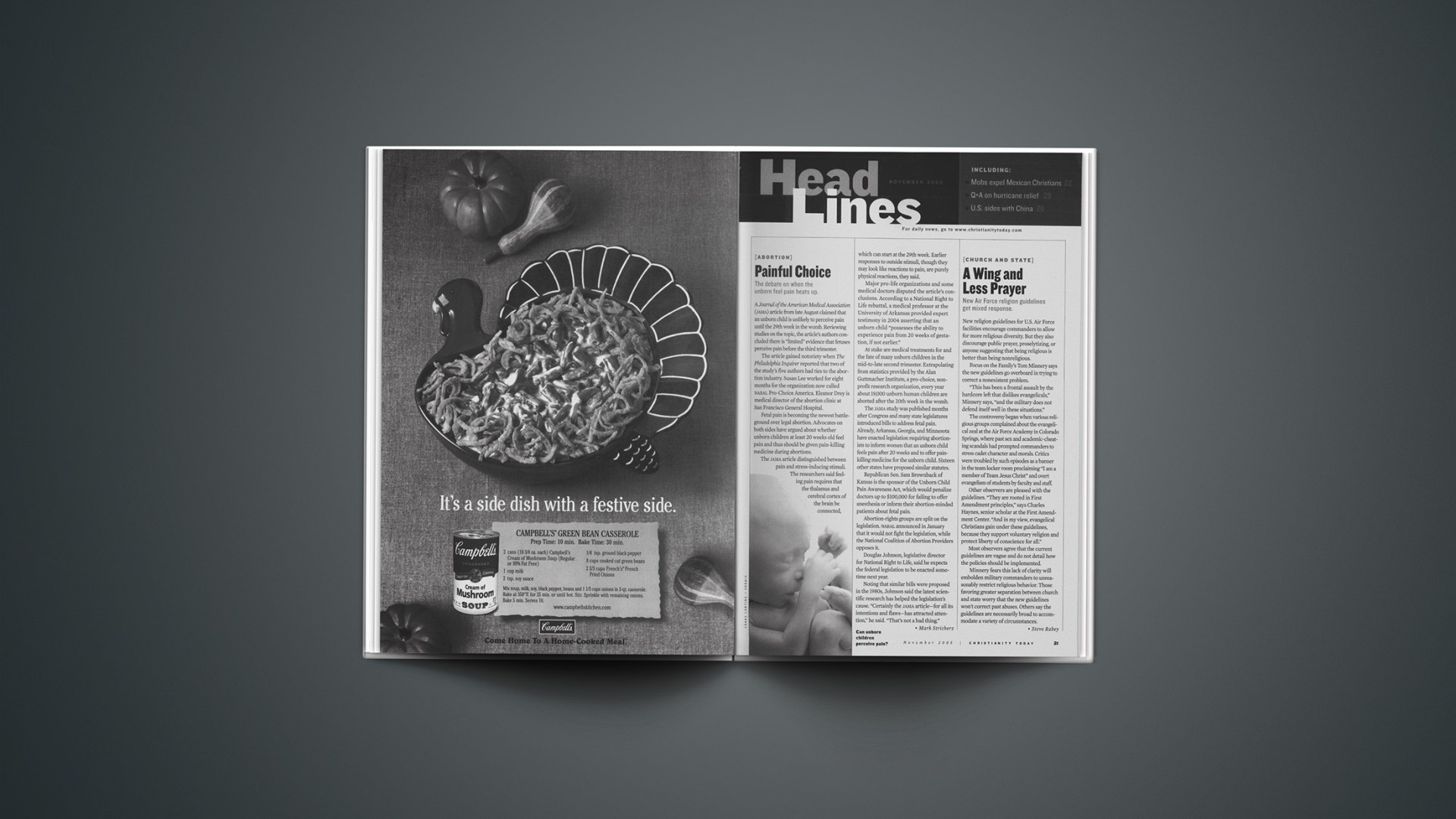An Air Force Academy graduate filed suit against the school today alleging that evangelical officers and cadets coerced students to attend religious services and generally created an environment of religious intolerance.
In response to similar accusations, the Air Force in late August issued new religion guidelines encouraging commanders to allow for more religious diversity. But the guidelines also discourage public prayer, proselytizing, or suggesting that being religious is better than being nonreligious.
Focus on the Family’s Tom Minnery says the new guidelines go overboard in trying to correct a nonexistent problem.
“This has been a frontal assault by the hardcore left that dislikes evangelicals,” Minnery says, “and the military does not defend itself well in these situations.”
The controversy began when various religious groups complained about the evangelical zeal at the Air Force Academy in Colorado Springs, where past sex and academic-cheating scandals had prompted commanders to stress cadet character and morals. Critics were troubled by such episodes as a banner in the team locker room proclaiming “I am a member of Team Jesus Christ” and overt evangelism of students by faculty and staff.
Other observers are pleased with the guidelines. “They are rooted in First Amendment principles,” says Charles Haynes, senior scholar at the First Amendment Center. “And in my view, evangelical Christians gain under these guidelines, because they support voluntary religion and protect liberty of conscience for all.”
Most observers agree that the current guidelines are vague and do not detail how the policies should be implemented.
Minnery fears this lack of clarity will embolden military commanders to unreasonably restrict religious behavior. Those favoring greater separation between church and state worry that the new guidelines won’t correct past abuses. Others say the guidelines are necessarily broad to accommodate a variety of circumstances.
Copyright © 2005 Christianity Today. Click for reprint information.










